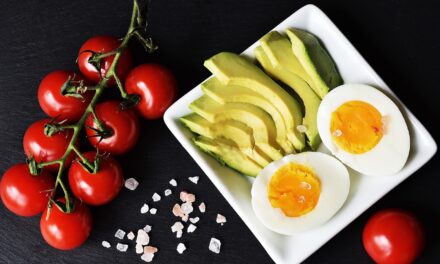As we cross the threshold into our 50s and beyond, the foods we consume play a pivotal role in how we manage health and combat age-related conditions. Inflammation is a natural immune response, but when it becomes chronic, it is linked to a host of diseases prevalent in older adults, including arthritis, heart disease, Alzheimer’s, and diabetes. Adopting an anti-inflammatory diet is not just about reducing symptoms—it’s about fostering a healthier, more vibrant life as we age.
This article delves into the power of anti-inflammatory foods for individuals over 50. It explores how incorporating certain foods into your diet can significantly dampen inflammatory processes, improve overall health, and enhance quality of life. By understanding the connection between diet and inflammation, those in their later years can take proactive steps to maintain their health and vitality.
Inflammation can be insidious, often contributing to the gradual onset of many diseases without clear symptoms until much later in life. Thus, eating foods with anti-inflammatory properties is a crucial strategy for preventive health care. This guide will provide an in-depth look at which foods to embrace and why they are beneficial, supported by scientific research and expert insights. From the rich, omega-3 laden oils of fatty fish to the potent antioxidants found in berries and dark leafy greens, we’ll cover the essential components of an anti-inflammatory diet tailored for those 50 and older.
Join us as we explore a comprehensive list of anti-inflammatory foods, discuss their health benefits, and offer practical tips on how to integrate them into daily meals to fight inflammation and promote longevity.
Continuing from the introduction, let’s delve deeper into the specifics of anti-inflammatory foods and their significant benefits for individuals over 50, supported by research and expert insights.
Nutritional Allies: Anti-Inflammatory Foods for Optimal Health
Understanding which foods to include in your diet can dramatically impact your health by reducing inflammation. Here, we explore the top anti-inflammatory foods, why they work, and how to incorporate them into your daily routine effectively.
1. Omega-3 Rich Foods
Omega-3 fatty acids are well-known for their anti-inflammatory effects, particularly in reducing the risk of cardiovascular diseases and improving joint health.
– Fatty Fish: Salmon, mackerel, and sardines are excellent sources of omega-3 fatty acids. Aim for 2-3 servings per week to support heart health and reduce inflammation markers.
– Flaxseeds and Chia Seeds: For a plant-based omega-3 option, incorporate ground flaxseeds or chia seeds into your diet. They can be added to smoothies, yogurts, or salads for an extra nutritional boost.
2. Antioxidant-Rich Fruits and Vegetables
Antioxidants play a crucial role in reducing inflammation by neutralizing free radicals in the body. Foods high in antioxidants can help prevent chronic diseases and reduce inflammation.
– Berries: Strawberries, blueberries, and blackberries are rich in vitamins and minerals that support immune function and reduce inflammation.
– Leafy Greens: Spinach, kale, and Swiss chard contain high levels of vitamins and potent anti-inflammatory compounds that can decrease the risk of chronic diseases.
3. Whole Grains
Whole grains are packed with fiber, which can help reduce the levels of C-reactive protein (CRP) in the blood, a marker of inflammation.
– Quinoa and Brown Rice: Include whole grains like quinoa and brown rice in your diet instead of refined grains to help maintain a healthy weight and reduce inflammation.
– Oats: Start your day with a bowl of oatmeal, which can help lower cholesterol levels and promote heart health.
4. Nuts and Seeds
Nuts and seeds are good sources of healthy fats, proteins, and fiber, all of which help in fighting inflammation.
– Almonds and Walnuts: These nuts are high in omega-3 fatty acids, antioxidants, and vitamins that help control inflammation.
– Turmeric and Ginger: Spices like turmeric and ginger contain compounds that offer strong anti-inflammatory properties. Turmeric’s curcumin and ginger’s gingerol can significantly reduce inflammation related to arthritis and other conditions.
5. Healthy Oils
Choosing the right oils for cooking and dressing can have a profound effect on your inflammatory status.
– Olive Oil: Extra virgin olive oil is rich in polyphenols and oleic acid, which have strong anti-inflammatory properties, making it ideal for cooking and dressings.
– Avocado Oil: High in oleic acid and beneficial fats, avocado oil is another excellent choice for reducing inflammation.
Integrating Anti-Inflammatory Foods into Your Diet
Incorporating these foods into your daily diet requires mindful changes but can be done easily with some planning. Here are practical tips for integrating anti-inflammatory foods:
– Meal Planning: Prepare meals that incorporate a variety of these anti-inflammatory foods throughout the week.
– Healthy Snacking: Opt for snacks like nuts, seeds, and berries between meals to boost your intake of anti-inflammatory nutrients.
– Diverse Cooking Methods: Use healthy oils and cooking methods such as grilling, steaming, or baking to preserve the nutritional content and avoid adding unhealthy fats.
Summary and Takeaways: A Pathway to Reduced Inflammation and Enhanced Health
Embracing a diet rich in anti-inflammatory foods can lead to significant health benefits, especially for individuals over 50. By focusing on nutrient-dense foods that combat inflammation, you can improve your overall health, reduce the risk of chronic diseases, and maintain a higher quality of life as you age.
– Emphasize Variety: Include a wide range of anti-inflammatory foods in your diet to benefit from different nutrients that combat inflammation.
– Consistency is Key: Regular consumption of these foods is crucial for long-term health benefits and effective inflammation management.
– Consult Healthcare Providers: Always discuss any dietary changes with your healthcare provider, especially if you have chronic health conditions or are on medication.






